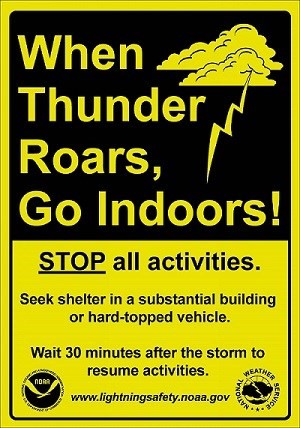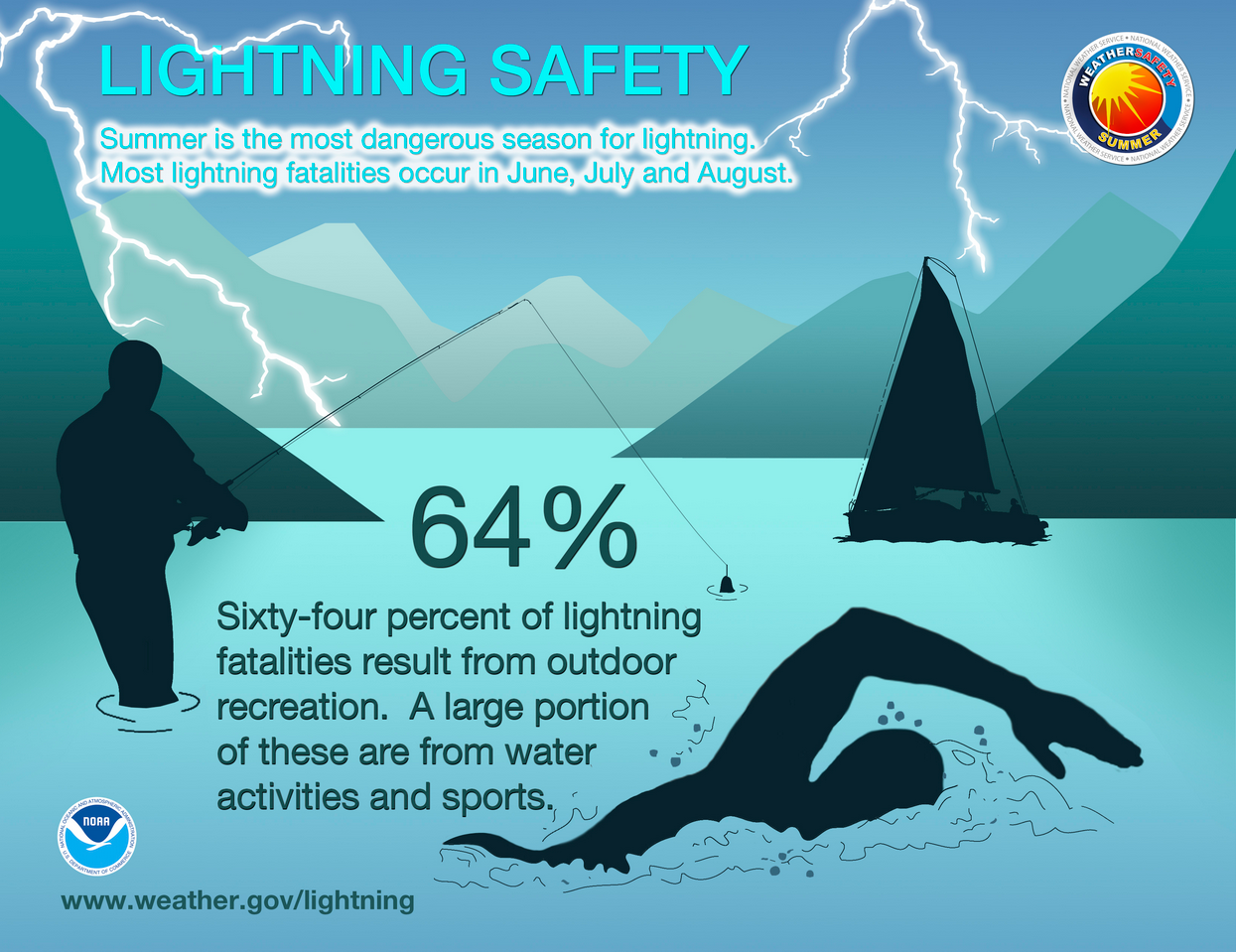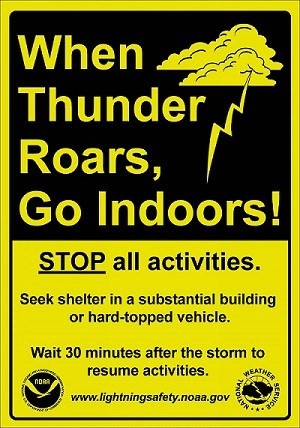MONDAY
National Lightning Safety Awareness week was started in 2001 to call attention to this underrated killer. Lightning strikes the United States about 25 million times a year. Although most lightning occurs in the summer, people can be struck at any time of year. Lightning kills 20 or more people in the United States each year, and hundreds more are severely injured.
Source: https://www.weather.gov/safety/lightning
TUESDAY
If you hear thunder, you are close enough to be struck by lightning. When Thunder Roars, Go Indoors!

Wednesday
Indoor Lightning Safety
- Stay off corded phones, computers and other electrical equipment that put you in direct contact with electricity.
- Avoid plumbing, including sinks, baths and faucets.
- Stay away from windows and doors, and stay off porches.
- Do not lie on concrete floors, and do not lean against concrete walls.
Source: https://www.weather.gov/safety/lightning-tips
Thursday

Friday
Lightning Safety Outdoors
There is little you can do to substantially reduce your risk if you are outside in a thunderstorm. The only completely safe action is to get inside a safe building or vehicle.
When a Safe Location is not Nearby
If you absolutely cannot get to safety, you can slightly lessen the threat of being struck with the following tips. But don't kid yourself--you are NOT safe outside. Know the weather patterns of the area you plan to visit. For example, in mountainous areas, thunderstorms typically develop in the early afternoon, so plan to hike early in the day and be down the mountain by noon. Listen to the weather forecast for the outdoor area you plan to visit. The forecast may be very different from the one near your home. If there is a high chance of thunderstorms, stay inside.
- Avoid open fields, the top of a hill or a ridge top.
- Stay away from tall, isolated trees or other tall objects. If you are in a forest, stay near a lower stand of trees.
- If you are in a group, spread out to avoid the current traveling between group members.
- If you are camping in an open area, set up camp in a valley, ravine or other low area. Remember, a tent offers NO protection from lighting.
- Stay away from water, wet items, such as ropes, and metal objects, such as fences and poles. Water and metal do not attract lightning but they are excellent conductors of electricity. The current from a lightning flash will easily travel for long distances.
Source: https://www.weather.gov/safety/lightning-outdoors

